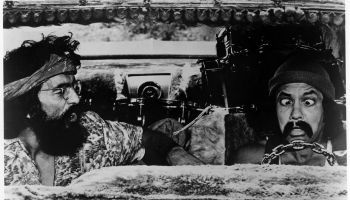Researchers at Chicago’s Cook County Hospital, one of the busiest trauma centers in the nation, have discovered that the 2,000 patients they treat a year for gunshot wounds weren’t just suffering from bullets.
In fact, just like veterans who experienced war, patients were exhibiting post-traumatic stress disorder.
And it makes sense — in 2013, Chicago was named the murder capital of the year. Gun violence is prevalent in the city’s neighborhoods, making the proverbial war in the streets just as challenging to deal with as the war-torn neighborhoods our military forces police.
But to be fair, the PTSD found in patients who live in violent neighborhoods isn’t exclusive to Chicago — victims of all violence (gun, sexual, physical, etc.) may suffer from PTSD.
But for Cook County, those numbers are high. Forty three percent of the patients doctors examined and more than half of gunshot-wound victims had signs of PTSD.
“We knew these people were going to have PTSD symptoms,” said Kimberly Joseph, a trauma surgeon at the hospital. “We didn’t know it was going to be as extensive.”
What the work showed, Joseph said, is, “This is a much more urgent problem than you think.”
Joseph proposed spending about $200,000 a year to add staffers to screen all at-risk patients for PTSD and connect them with treatment. The taxpayer-subsidized hospital has an annual budget of roughly $450 million. But Joseph said hospital administrators turned her down and suggested she look for outside funding.
“Right now, we don’t have institutional support,” said Joseph, who is now applying for outside grants.
A hospital spokeswoman would not comment on why the hospital decided not to pay for regular screening, but the need for such is growing. Research shows that Americans with traumatic injuries develop PTSD at rates comparable to veterans of war.
Just like veterans, civilians can suffer flashbacks, nightmares, paranoia, and social withdrawal. While the United States has been slow to provide adequate treatment to troops affected by post-traumatic stress, the military has made substantial progress in recent years. It now regularly screens for PTSD, works to fight the stigma associated with mental health treatment and educates military families about potential symptoms.
The same cannot be said for civilian trauma victims. Americans wounded in their own neighborhoods are not getting treatment for PTSD — in fact, they are not even getting diagnosed.
Studies show that, overall, about 8 percent of Americans suffer from PTSD at some point in their lives. But the rates appear to be much higher in communities–such as poor, largely African-American pockets of Detroit, Atlanta, Chicago and Philadelphia–where high rates of violent crime have persisted despite a national decline.
So high that the rates of PTSD are higher than Iraq, Afghanistan or Vietnam veterans. Yet, help for those suffering isn’t available or is slow to come.
For more information on PTSD and the growing number of cases in America’s traumatized neighborhoods, click here.
SOURCE: Mother Jones | PHOTO CREDIT: Getty
















